Word of the Year 2023
After more than 32,000 votes, and a team of language experts, Oxford’s Word of the Year 2023 is...
rizz
2023 marked the era of personal – and professional – PR. And what does it take to command attention? A whole lot of charisma, or the shortened form, ‘rizz’.
Pertaining to someone’s ability to attract another person through style, charm, or attractiveness, this term is from the middle part of the word ‘charisma’, which is an unusual word formation pattern. Other examples include ‘fridge’ (refrigerator) and ‘flu’ (influenza).
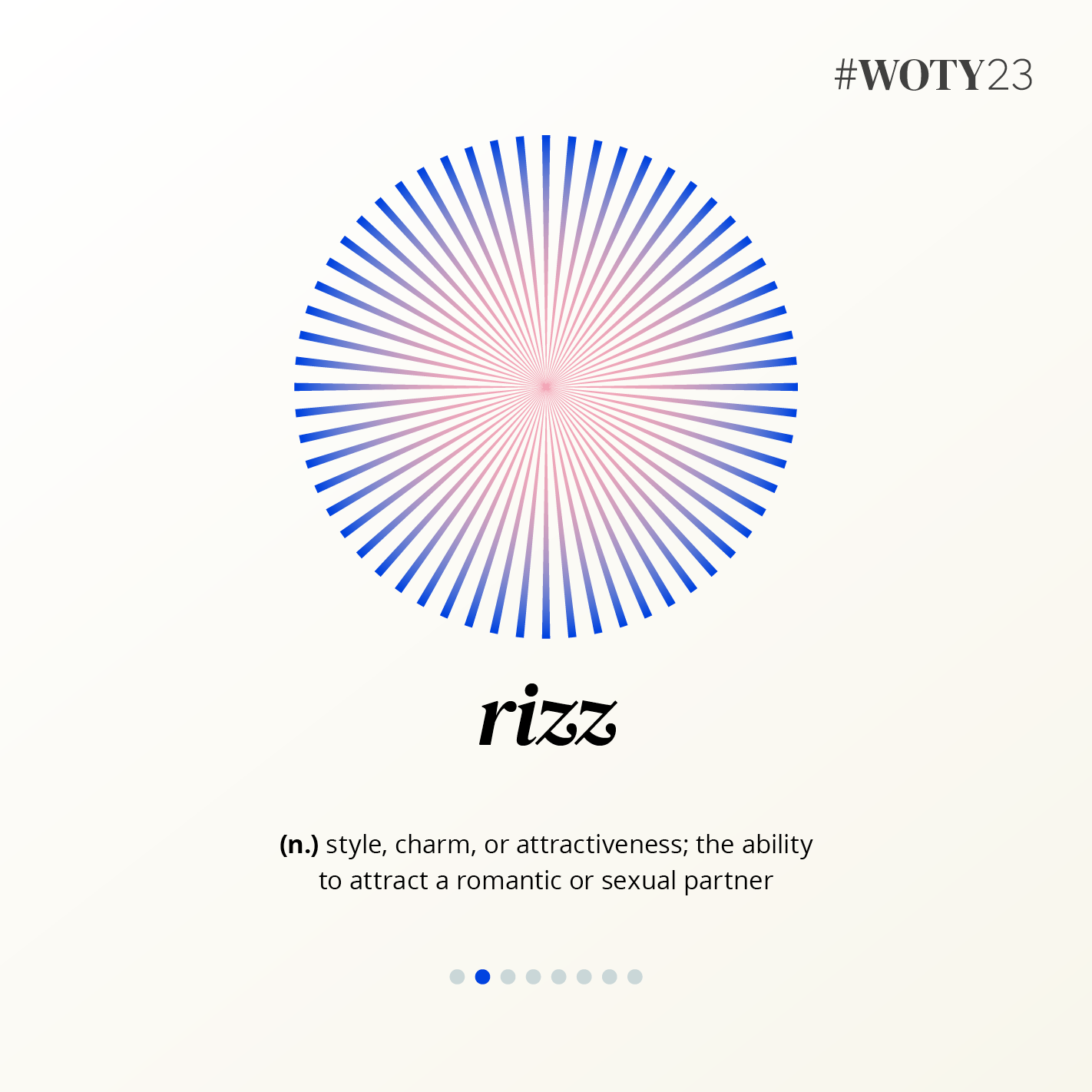

Use of the word as recorded in our corpus has increased dramatically in 2023, with a peak in June 2023, when actor Tom Holland was asked in a widely reported interview about his ‘rizz’, to which he answered, ‘I have no rizz whatsoever, I have limited rizz.’
Did you know?
The word ‘rizz’ can also be used as a verb, often in the phrase ‘rizz up’, which means ‘to attract, seduce, or chat up (a person)’.
my mom voting for the word of the year and i have to explain what rizz means
— toast 🐀 (@tostmonke) November 28, 2023
‘rizz’ in the Oxford Monitor Corpus of English:
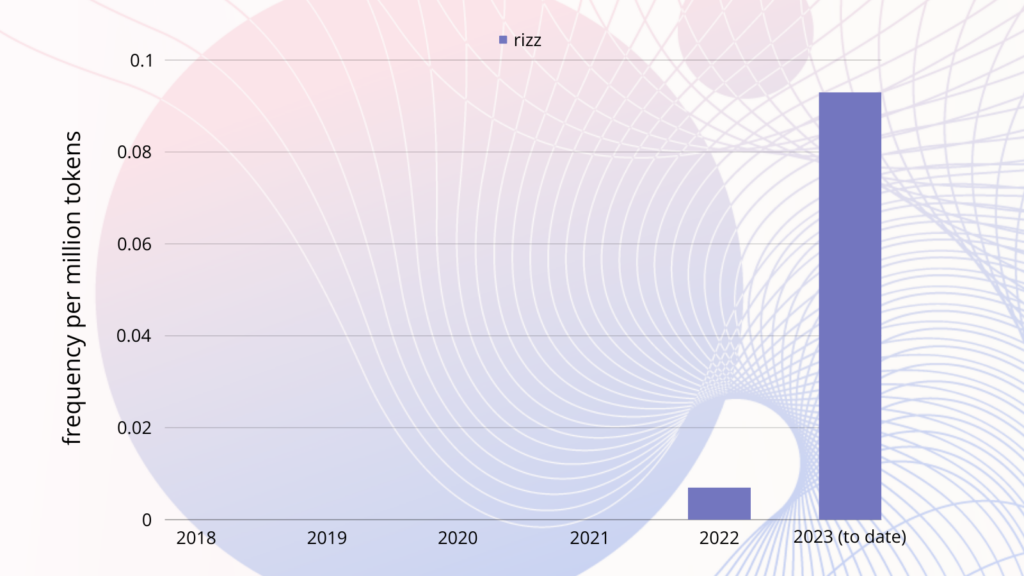
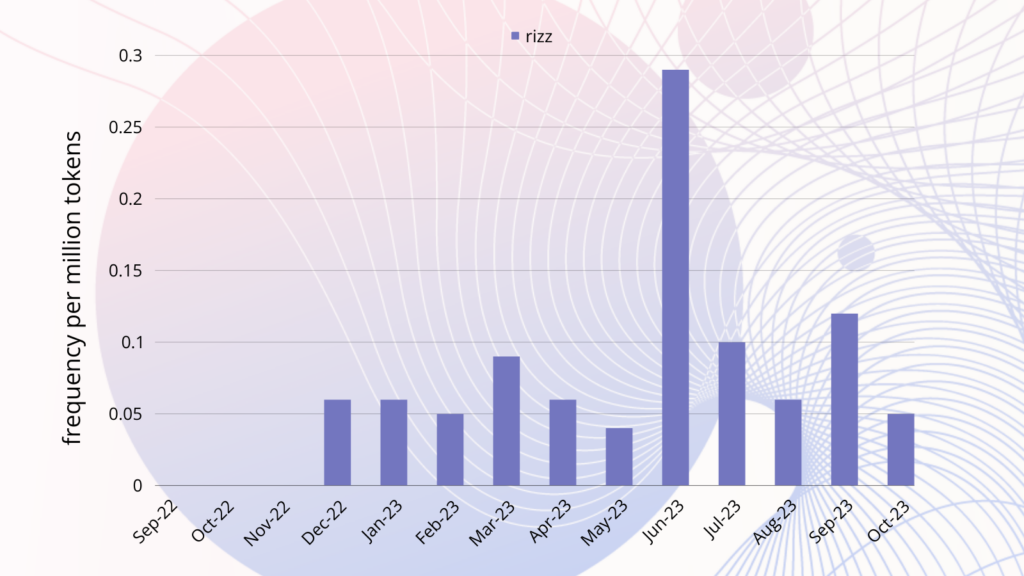
prompt noun
An instruction given to an artificial intelligence program, algorithm, etc., which determines or influences the content it generates.
As AI became more prevalent, so too did the need for human skills to moderate and direct these advances. Harnessing its potential means providing a ‘prompt’ to influence the content generated.
Words relating to AI have been particularly prominent in the corpus data this year, with use of the word ‘prompt’ in contexts that relate to AI increasing hugely this year from very little use in our corpus before 2022.

As AI systems have spread to business, education, creative contexts, and elsewhere, more people have developed the skills needed to use them effectively and, in some cases, becoming specialized as ‘prompt engineers’.
This new meaning is a development of a wider sense: ‘Something said or done to aid the memory; a reminder; spec. a word or phrase spoken to remind an actor, reciter, etc., of a forgotten word or line (cf. prompt v. 1)’. Use of this word reflects the increased prominence of artificial intelligence in society and highlights the interaction of humans with machines.
Did you know?
The word ‘prompt’ came into Middle English based on the Old French prompt or the Latin promptus 'brought to light', also 'prepared, ready'.
situationship noun
A romantic or sexual relationship that is not considered to be formal or established.
2023 saw us reevaluating how we connect with one another and the words we use to describe our relationships – and how some of those relationships defy convention.
Etymologically, ‘situationship’ is a blend of ‘situation’ and ‘relationship’. Blending is a notable source of new words in English, particularly when words are coined self-consciously to describe a new phenomenon.
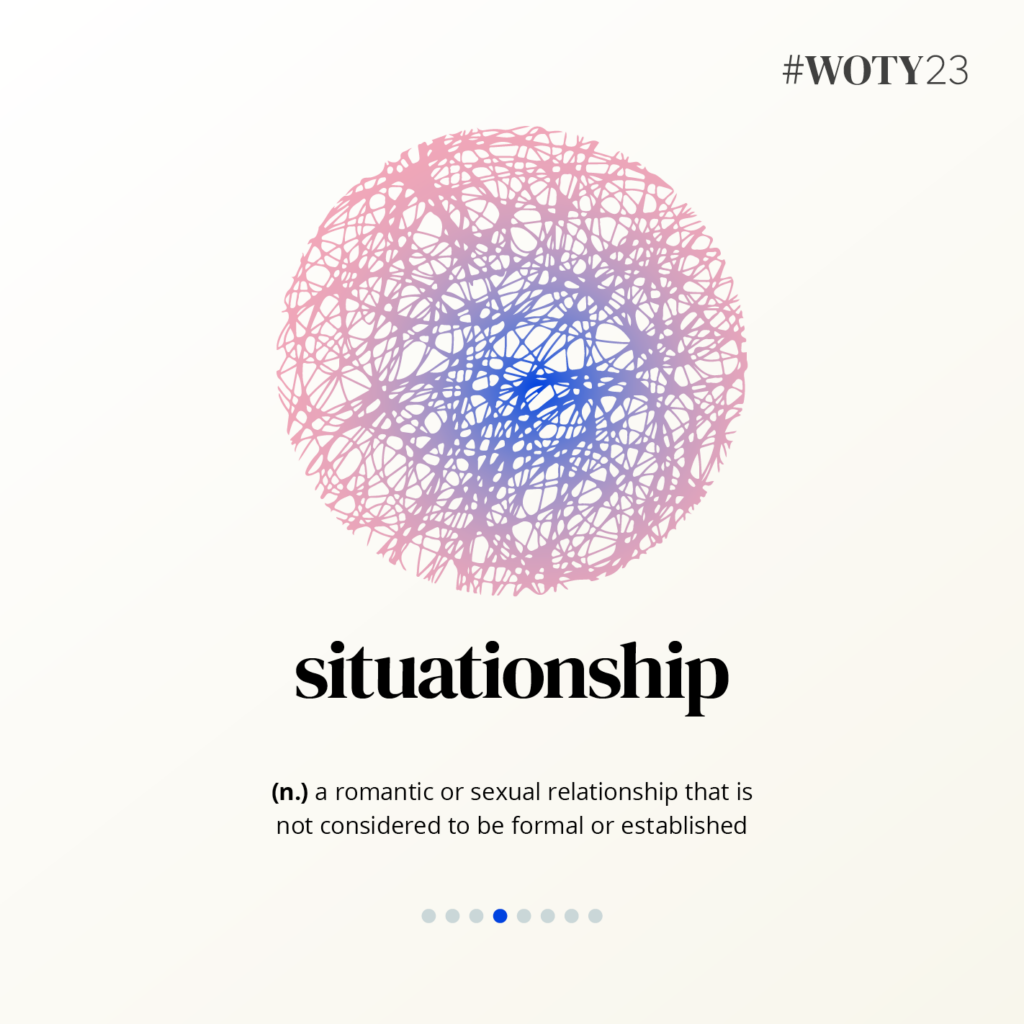
A term popularized by social media and modern dating shows, the term seems to have been coined in the late noughties or early 2010s and refers to a romantic or sexual relationship that is not considered to be formal or established, sometimes one that’s outside society’s conventions.
The word captures the uncertainty and lack of formalization that many people feel about their relationships. Its usage has been growing steadily in frequency showing that the term has certainly resonated with people.
Swiftie noun
An enthusiastic fan of the singer Taylor Swift.
2023 saw us being influenced more than ever by public figures, whether traditional superstars or those who have become famous on the internet. And it's hard to think of this year without thinking about fandom culture and Taylor Swift, who dominated headlines with her record-breaking tour, movie deal, and billionaire empire.
The term ‘Swiftie’, meaning ‘an enthusiastic fan of the singer Taylor Swift’, seems to date from the late noughties and has been gradually growing in prominence.
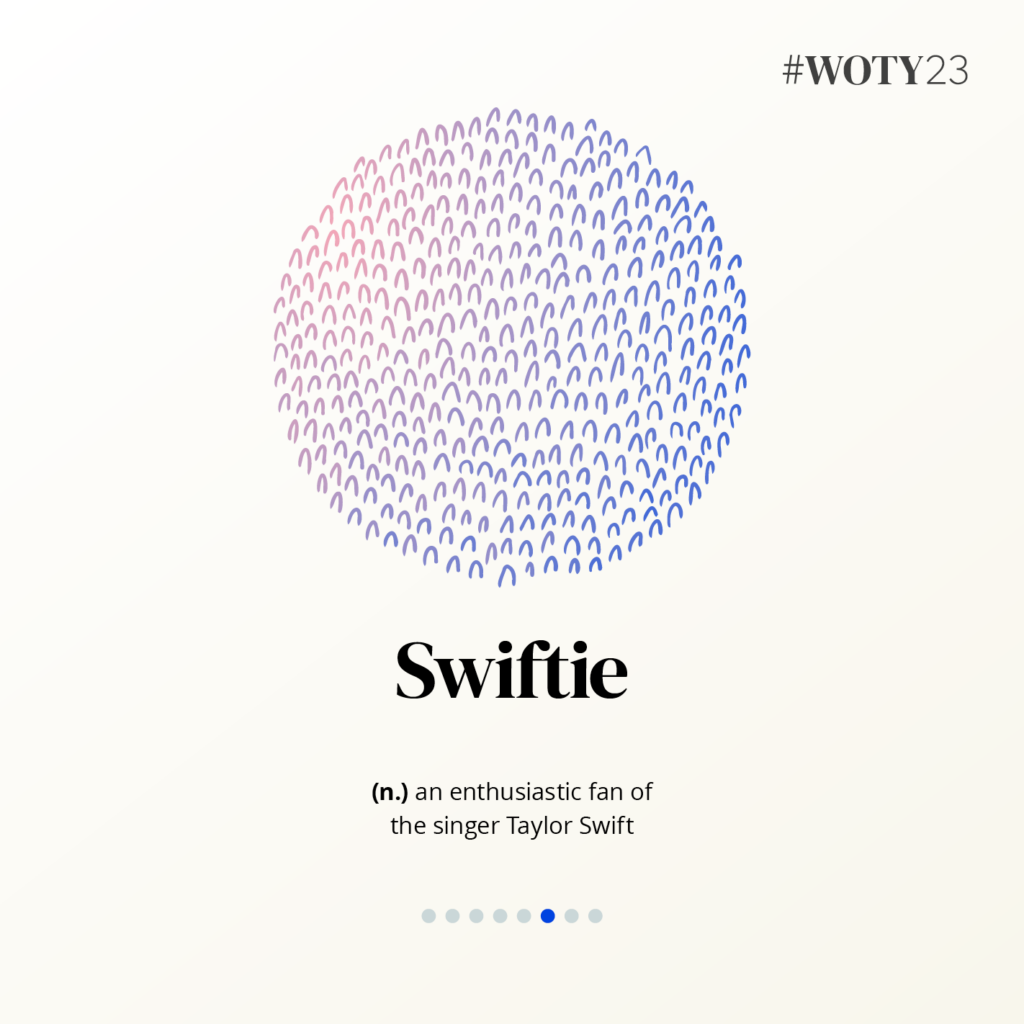
The word was more than 10 times more common in September 2023 than a year before in September 2022, with a noticeable uptick in the use of the word likely related to coverage of Swift’s highly successful Eras tour.
Etymologically, the word ‘Swiftie’ is formed from the singer’s name, with the suffix ‘ie’ (or ‘y’), which is often used to form diminutives or pet names, with an implication of affection.
Some words that commonly collocate with Swiftie are ‘fandom’ (Swiftie fandom), ‘die-hard’ (die-hard Swiftie), ‘hardcore’ (hardcore Swiftie), and ‘self-proclaimed’ (self-proclaimed Swiftie).
Did you know?
There are many other examples in English of names for fans of popular musicians, bands, etc. such as: the Beyhive (Beyoncé), Directioners (One Direction), Deadheads (Grateful Dead), and Beatlemania, describing the enthusiasm of fans of the Beatles.
beige flag noun
A character trait that indicates that a partner or potential partner is boring or lacks originality; (also) a trait or habit, esp. of a partner or potential partner, viewed as extremely characteristic, but not distinctly good or bad.
de-influencing noun
The practice of discouraging people from buying particular products, or of encouraging people to reduce their consumption of material goods, esp. via social media.
heat dome noun
A persistent high-pressure weather system over a particular geographic area, which traps a mass of hot air below it.
parasocial adjective
Designating a relationship characterized by the one-sided, unreciprocated sense of intimacy felt by a viewer, fan, or follower for a well-known or prominent figure (typically a media celebrity), in which the follower or fan comes to feel (falsely) that they know the celebrity as a friend.
